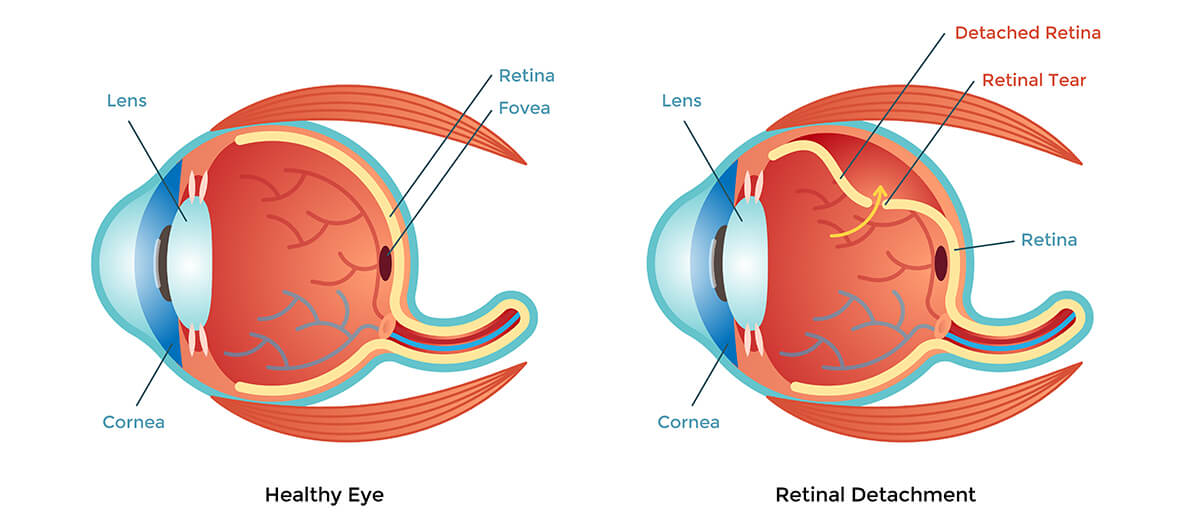

What is Retinal Detachment?
The retina is the light-sensitive layer of tissue that lines the inside of the eye and sends visual messages via the optic nerve to the brain. When the retina detaches, it is pulled from its normal position. Retinal detachment is caused by a retinal tear and can lead to blurred or lost vision.
What Are the Warning Signs of Retinal Detachment?
These early symptoms may indicate the presence of a retinal tear or detachment:
- flashing lights; new floaters;
- a shadow in the periphery of your field of vision;
- a gray curtain moving across your field of vision.
Although the presence of these symptoms is not always associated with a retinal detachment, they warrant an evaluation with an ophthalmologist as soon as possible. A careful dilated eye examination is needed in order to diagnose a retinal tear or retinal detachment.

What treatment is needed?
If a person has a tear or hole in their retina that hasn’t yet led to a detachment, they may be offered laser surgery or cryotherapy (a procedure involving a freezing probe) to help prevent this from happening. These treatments aim to weld the retina firmly to the underlying support tissue and seal the damaged area to prevent fluid passing through that may cause a detachment. These treatments cause little or no discomfort and may be performed in your doctor’s office. Treatment usually prevents a retinal detachment.
For retinal detachments, surgery is the only treatment for retinal detachment. The goals of retinal detachment surgery are to reattach the retina and to prevent or reverse vision loss.
In general, the sooner an operation can be carried out, this increases the chances of a good outcome.There are different types of surgical approaches for retinal detachment and the most appropriate option will be very individual to each person. A retinal surgeon after examining your eye and deciding how quickly surgery needs to happen – this may be within 24 hours or a few days/weeks.
There are a few complications, which are not too common but may occur following a surgical procedure and another operation may be needed to fix the retina. Possible complications include:
- Bleeding inside the eye
- More holes in the retina
- Bruises
- Glaucoma
- Cataracts – cloudy lens
- Double vision
Surgery is often successful at reattaching the retina in about 80-90% of cases with the first operation, but how well a person’s sight recovers will depend on a number of factors such as the location, cause, and extent of the detachment, and if they have any other complicating factors such as other eye conditions. But if a retinal detachment is left untreated, a person is likely to eventually lose all sight in their affected eye.